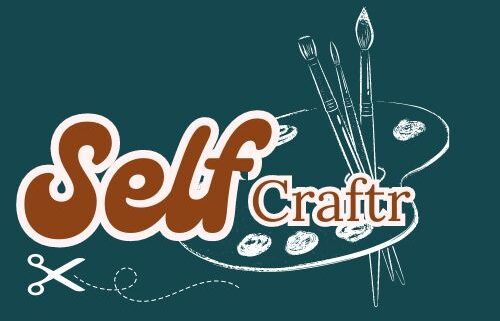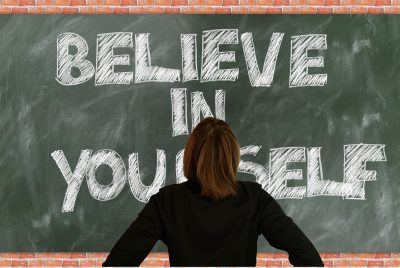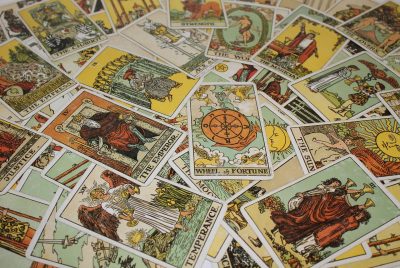Personal Development Goals: Your Path to Success and Fulfillment
We may earn a commission for purchases made using our links. Please see our disclosure to learn more.
Let me ask you this: have you ever had the feeling that you’re merely going through the motions, navigating life without a clear sense of your destination? We’ve all been there, I promise. Like being stuck on a treadmill with no end in sight, it can be exasperating. The good news is that you can completely change it by establishing personal development goals. It directs you toward the things that are truly important in life, much like a personal GPS. Let’s explore how you might create these objectives to reach your full potential and have a more purposeful life.
What Are Personal Development Goals?
Consider your goals for personal growth as stepping stones. They fill the space between where you are now and where you want to be (really, really—think of those tiny stones that help you cross a stream). From developing skills and good habits to increasing your emotional health and self-awareness, these objectives assist you in improving many aspects of your life.
Instead of stating something general like “I just want to be happier,” personal development goals assist you in being more specific. See the difference? For instance, it’s preferable to state, “I’ll exercise for 30 minutes, five times a week,” rather than, “I want to be healthier.” It all comes down to clarity.
Why Are Personal Development Goals Important?
Consider embarking on a road journey without a GPS or map. It seems like a recipe for disaster, doesn’t it? Without personal development goals, life can feel aimless (unless you enjoy getting lost, of course). Establishing specific goals helps you stay motivated and prevents you from being mired in your daily routine.
What else is so wonderful about personal growth goals? They significantly increase your self-confidence. It feels good to give yourself a pat on the back after you accomplish one of your goals. It serves as a reminder that you’re getting better. Along the road, you’ll also discover that you stay more motivated and manage your time better.
How to Set Effective Personal Development Goals
Setting goals isn’t rocket science, but there’s definitely an art to doing it well. Your goals should inspire you, but they also need to be realistic. So how do you set goals that stick? Let me break it down for you.
1. Start with Self-Reflection
Before you can move forward, it’s super important to look inward. Self-reflection is key. Think of it like taking inventory of your life—what’s working, what’s not, and where you could use some improvement. Ask yourself:
- What’s preventing me from moving forward now?
- What really makes me happy?
- What do I want to achieve in the next year?
Once you’ve answered those questions, you’ll have a much clearer idea of the goals that matter most to you.
2. Make Your Goals SMART
I’m sure you’ve heard of SMART goals, right? If not, let me fill you in—SMART is an acronym that stands for:
- Specific: Clearly define what you want to achieve.
- Measurable: Make sure you can track your progress.
- Achievable: Be ambitious, but also realistic.
- Relevant: Your goals should align with your overall life vision.
- Time-bound: Set a deadline for when you want to accomplish your goal.
For instance, instead of saying, “I want to be healthier,” try something more concrete like, “I’ll work out for 30 minutes a day, five days a week, for the next three months.” See how much more doable that sounds?
3. Break It Down
Big goals can feel intimidating—kind of like standing at the base of a huge mountain. But here’s a little trick: break those goals down into smaller, bite-sized steps. If your goal is to learn a new language, for example, start by mastering basic greetings. Once you’ve nailed that, move on to more complex stuff like grammar and vocabulary. Each mini-victory will keep you motivated.
4. Stay Accountable
Let’s be real—how easy is it to slack off when no one’s watching? Staying accountable is crucial when you’re working toward personal development goals. Tell a friend or relative about your objectives so they can monitor your progress.. You could even keep a journal or use an app to track your achievements. Whatever works for you, just make sure there’s something (or someone) keeping you in check.
5. Celebrate Your Wins
I can’t stress this enough—celebrate your wins, no matter how small. Whether it’s treating yourself to something special or just taking a moment to reflect, acknowledging your progress will keep you energized and motivated.
Examples of Personal Development Goals
If you’re stuck wondering where to start, no worries. Let’s explore a few areas where you can set personal development goals. Hopefully, these examples will inspire you to create your own.
6. Enhance Emotional Intelligence
Emotional intelligence is all about understanding and managing your emotions, as well as those of others. Maybe your goal is to practice mindfulness, manage stress better, or simply become a better listener. All of these will enhance your emotional intelligence.
7. Build Better Relationships
Good relationships can make a world of difference to your happiness and overall well-being. Your goal might be to communicate more effectively, resolve conflicts calmly, or spend more quality time with loved ones. (Trust me, they’ll appreciate it.)
8. Improve Time Management
Time is your most valuable resource—once it’s gone, you can’t get it back. Setting a goal to improve your time management can help you get more done without feeling like you’re running on empty. Try using a planner, setting daily priorities, or experimenting with the Pomodoro technique.
9. Boost Self-Confidence
Not everyone is born with a boatload of self-confidence, but it’s definitely something you can develop. If self-confidence is something you struggle with, set a goal to step out of your comfort zone more often, practice positive affirmations, or speak up more in meetings. Baby steps lead to big changes!
10. Learn a New Skill
We all have that one thing we’ve always wanted to learn but never got around to. Whether it’s playing an instrument, coding, or mastering a new recipe, setting a goal to learn a new skill can be both fulfilling and fun.
11. Focus on Physical Health
Your body and mind are connected, so focusing on your physical health is a no-brainer. Whether you want to work out more often, eat healthier, or improve your sleep habits, setting goals around physical well-being can seriously improve your quality of life.
12. Develop a Growth Mindset
Having a growth mindset means believing that you can improve through effort and learning. It’s all about embracing challenges rather than avoiding them. Reframe negative thoughts, learn from failures, and you’ll be well on your way to developing a growth mindset.
13. Manage Stress Effectively
Let’s face it—stress happens. But how you handle it can make all the difference. Set a goal to practice relaxation techniques, reduce your workload, or even seek professional help if needed.
14. Improve Financial Literacy
Managing money isn’t always something we’re taught, but it’s an essential life skill. Set a goal to improve your financial literacy by creating a budget, learning about investments, or saving for future goals. (Future you will thank you!)
15. Practice Gratitude
Gratitude is one of the easiest and most powerful ways to shift your mindset. Keep a daily gratitude journal, focus on the positive moments, or simply make a habit of expressing appreciation to those around you.
16. Create a Morning Routine
How you start your day sets the tone for the entire thing. Establish a morning routine that works for you, whether that’s waking up earlier, practicing meditation, or setting daily intentions.
How to Stay Motivated on Your Personal Development Journey
Let’s be honest—sticking to personal development goals isn’t always easy. Some days, you’ll feel like you’re crushing it, and other days… not so much. But don’t give up! Here are a few tips to stay motivated:
17. Visualize Success
Imagine yourself achieving your goals. Seriously, close your eyes and picture it—how does it feel? Visualization is a powerful tool that can help keep you focused on what you want.
18. Surround Yourself with Positivity
You are the company you keep. Surround yourself with people who uplift you, whether it’s friends, family, or mentors. Positive vibes are contagious!
19. Embrace Failure
Nobody likes to fail, but here’s the thing: failure is part of the process. It’s not the opposite of success; it’s a stepping stone. Each time you stumble, you’re learning something valuable.
20. Revisit and Revise Your Goals
Life happens, and sometimes your goals will need to change. Don’t be afraid to revisit your goals and make adjustments if needed. It’s all part of the journey.
21. Stay Patient
Personal growth takes time. (I know, I know—patience isn’t always easy.) But remember, every small step counts. Stay patient, and trust the process.
Related Products to Support Your Personal Development Goals
While personal development is mostly an inside job, there are some helpful tools out there that can give you a little boost. Here are a few product categories that might make your journey a bit smoother:
- Journals and Planners: These are great for tracking progress and organizing your thoughts.
- Self-Help Books: Tons of great reads out there, covering everything from emotional intelligence to time management.
- Meditation Tools: Great to help you practice mindfulness.
- Fitness Equipment: If physical health is part of your goal, consider investing in resistance bands, yoga mats, or fitness trackers.
- Motivational Posters and Wall Art: Sometimes all you need is a little visual reminder of your goals!
Research on Personal Development Goals
Personal development goals are essential for individual growth and self-improvement across various life domains. Recent studies highlight the importance of personal growth initiatives, self-efficacy, and structured planning in achieving these goals.
1. Personal Growth Initiative and Self-Efficacy
A study published in the Journal of Health Psychology emphasizes the role of personal growth initiative as a significant predictor of academic self-efficacy among college students. This initiative is defined as the conscious effort to improve oneself and is linked to clearer goal-setting and life planning. Higher levels of personal growth initiative correlate with better academic performance and career exploration, suggesting that individuals who actively pursue self-improvement are more likely to achieve their goals effectively.
2. Youth Self-Development Projects
Research by Larisa Timasheva indicates that personal growth projects can significantly aid self-development in youth. The study found that a substantial percentage of students view self-development as a crucial life task, often influenced by their environment. Key findings include:
- 72% of students aim to create a family.
- 64% focus on professional careers.
- 50% prioritize education as a life goal.
However, challenges such as low motivation and weak willpower hinder their progress towards these goals
Conclusion: Your Journey to Personal Development Starts Now
Here’s the thing—personal development is a journey, not a one-time event. It’s about setting meaningful, achievable goals that help you grow and lead a more fulfilling life. Whether you want to improve your relationships, boost your self-confidence, or learn a new skill, your personal development goals will guide you every step of the way.
Growth doesn’t happen overnight, but with consistent effort, you’ll see real changes. So, what’s your first goal? Time to get started!
5 FAQs About Personal Development Goals
1. How do I stay consistent with my personal development goals?
Consistency comes down to commitment. Break your goals into smaller steps, track your progress, and celebrate each little win.
2. What’s the best way to measure progress in personal development?
Keep a journal or use a planner to track your progress. Apps are also great for staying organized and seeing how far you’ve come.
3. Can I change my personal development goals once I’ve set them?
Of course! Life changes, and so should your goals. Don’t be afraid to tweak them as needed.
4. How long does it take to see results from personal development goals?
It really depends on the goal. Some may show results within weeks, while others might take months. The key is to stay patient.
5. What should I do if I feel unmotivated?
When motivation fades, revisit your “why.” Why did you set this goal in the first place? To make your objective seem more doable, divide it up into smaller activities.
Now, with these tips in hand, you’re ready to start working on those personal development goals!




